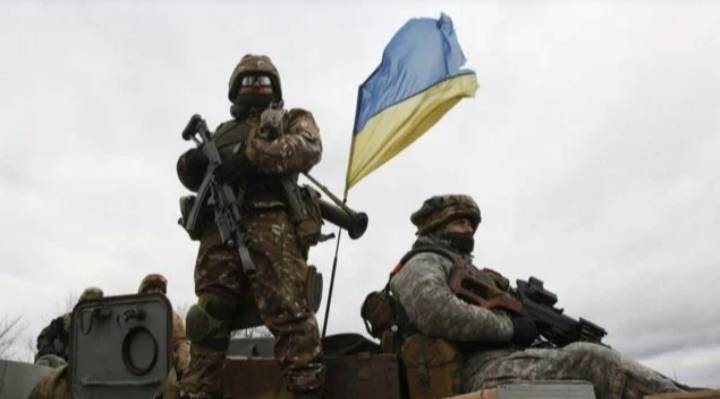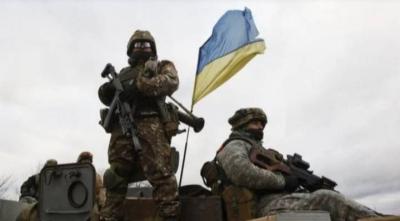As the first year of the Russian-Ukrainian war ends and the conflict enters its second year, its economic repercussions continue to cast shadows on the global economy, leading it towards significant disruptions and an uncertain fate in some low-income countries. The global food market, particularly essential agricultural crop activities, is facing a new crisis, increasing costs globally and threatening to worsen the situation as the conflict persists.
At a time when global economies were preparing to recover from the impacts of the COVID-19 pandemic, and global supply chains were moving to reconnect countries and restock markets, the Russian-Ukrainian war has aggravated the suffering of global economies and added new crises related to food shortages and rising prices of other commodities. This is due to the two countries’ significant role in the global food basket—accounting for one-third of the world's wheat and barley production, over 70% of sunflower oil, and 12% of global corn exports, while Russia is the largest global producer of fertilizers.
**Inflation in Double Digits**
A report from the World Bank published in early February noted the continuing rise in local food price inflation worldwide, indicating that nearly all low- and middle-income countries have experienced increases in inflation rates, with over 5% price hikes reported in 83.3% of low-income countries, 90.2% in the lower middle-income group, and 91% in the upper middle-income group, leading most to experience double-digit inflation.
The report attributed the sustained rise in inflation to several global economic factors, primarily the Russian-Ukrainian war, its effects on global supply chains, energy and gas prices, and the turmoil in global markets.
**Wheat Prices**
Wheat prices surged to record levels months after the Russian-Ukrainian war began, with increases peaking at 40% in early May 2022. Global markets experienced severe tensions due to other factors, including drought risks in the southern United States and Western Europe, leading to American forecasts predicting a one-third reduction in Ukrainian wheat production for 2022-2023.
The crisis concerning increased wheat prices deepened in late May 2022, following India's decision—being the second-largest wheat producer in the world—to prohibit wheat exports without special government permission due to decreased production from intense heatwaves. Wheat prices reached €435 (approximately $453) per ton in the European market.
**Decline in Exports**
The Food and Agriculture Organization (FAO) reported that Ukraine would see the largest decline in grain exports during the 2022-2023 season, dropping 47% from 19 million tons in the previous season to 10 million tons. The report also forecasted that Russia would maintain its position as the leading exporter of wheat globally, with exports estimated at 35 million tons annually.
**Food Security**
Following the outbreak of war in Ukraine, with concerns from some exporting countries regarding a worsening global food crisis, there has been an escalation of trade-related policies within those nations. The number of restrictions on food trade aimed at increasing local supplies and reducing prices has increased; 19 countries imposed 23 export prohibition decisions, while 8 countries implemented 12 export restrictions. Several global reports have predicted that up to 205 million people in 45 countries may face severe food security shortages and urgent assistance needs.
**Market Instability**
In an analysis of the market situation, the Ukrainian crisis contributed to international market disruptions, resulting in a sharp decline in global asset classes, most of which ended the year with significant losses. Kuwait-based Kamco Investment confirmed that 2022 was exceptional, noting significant declines in stock and bond markets affected by various factors including the Russian-Ukrainian war, inflation, rising commodity prices, and international geopolitical issues.
According to the report, indices dropped nearly 20% during the year; the MSCI Emerging Markets Index fell by 22.4%, while a report from the Financial Times revealed that stocks and bonds lost around $35 trillion in value during 2022.
Kamco reported that after reaching record levels at the end of 2021, global stock markets registered their first decline in four years during 2022, reflecting the struggles in most global markets, with the MSCI World Index falling by 19.5%, indicating a double-digit decline in most major markets. The U.S. was the hardest hit among developed markets, with the S&P 500 Index dropping by 19.4% for the year.
**Global Growth**
The International Monetary Fund (IMF) stated at the end of January that global growth is projected to decrease to 2.9% in 2023, down from 3.4% in 2022. The IMF's latest forecasts indicate an improvement compared to its October predictions of 2.7% growth for this year, yet it warns that the world may easily slide into recession. Chief economist Pierre-Olivier Gourinchas remarked, "New disruptions may come from an escalation of the war in Ukraine," adding regarding the 2023 outlook, "We must be somewhat prepared for the unexpected; it may be a turning point as growth declines to its lowest levels."
**Trillions in Costs**
Regarding the economic impact of the Ukraine war, the Organization for Economic Cooperation and Development (OECD) predicted that the war's costs to the global economy could reach approximately $2.8 trillion by the end of 2023. It noted that the war has disrupted markets worldwide, exacerbated supply chain and global supply imbalances, and increased energy prices, weakening household spending and undermining business confidence, resulting in food shortages and other necessities.
It mentioned that prolonging the conflict would increase uncertainty weighing on the global economy, threatening further economic crises and accumulating distortions in some global economies, and forcing an increasing number of companies to cut their activities.
**Economic Concerns**
Saudi economist and Shura Council member Fadl bin Saad Al-Bouainein believes the Russian-Ukrainian war has disrupted the fundamentals of global economies, particularly European nations, indicating that the global economy is one of the biggest victims. He pointed out that its impacts on logistics have extended to supply chains, leading to severe repercussions in various countries' economies.
Al-Bouainein added that the war has caused deep economic crises across all sectors without exception, highlighting energy security, food security, global food supply shortages, and rising inflation. He predicted that the cost of the war to the global economy could exceed the estimated figure of $2.8 trillion, "possibly by a wide margin."
**Significant Shock Waves**
The council member anticipated ongoing economic recession this year, with persistent inflation in global markets, potentially leading to new crises in supply chains, transportation, food shortages, and rising unemployment rates, which could result in severe shock waves within the global financial system if the war continues and its current tools evolve, possibly expanding geographically.
He pointed out that the future of the global economy, if the war persists, might lead to a surge in sovereign debt for most nations, risking its collapse and pushing it into a more devastating phase than it is currently in. He noted that European economies will be significantly affected in both the short and long term, potentially contributing to the disintegration of the European Union under pressures from each country’s national interests.
**Future Directions**
Dr. Mohammed bin Dalim Al-Qahtani, an economics professor at King Faisal University in Saudi Arabia, stated that the Russian-Ukrainian war has intensified global economic crises, hastening economic recessions in some G20 countries. He pointed out that significant global economies will likely record low or even negative growth rates through 2023, indicating the large dilemma facing the global economy.
Dr. Al-Qahtani urged the G20 countries to unite and increase their meetings in this year to help extricate the global economy from its current plight and stimulate economic initiatives that could prevent any future economic contraction or recession.
Regarding the potential future for the global economy amid the Russian-Ukrainian conflict, Dr. Al-Qahtani predicted that the global economic crisis, including food issues, would persist until at least 2028, explaining that even if the war ceases after that, the global economy's push to return to pre-war levels would make the situation tough, considering that the global economy exceeds $100 trillion and requires digital mechanization, systems, procedures, mechanisms, ideas, and years to return to previous levels and for markets to interact effectively.
He emphasized the necessity of global action and a diplomatic and political intelligence approach to halt the Russian-Ukrainian war, leveraging Russia's partnerships and friendly relations with other nations to find a geopolitical solution to this global crisis, halting the escalation of economic crises and their impact on the global markets, and spinning the wheels of the global economy.




